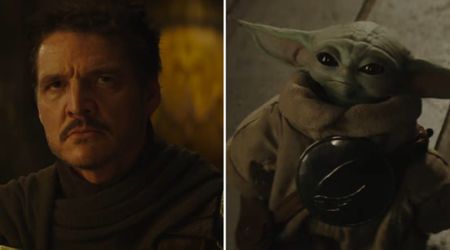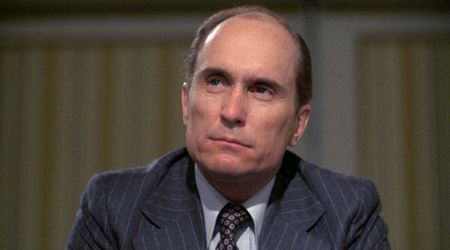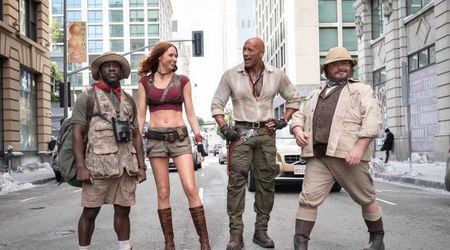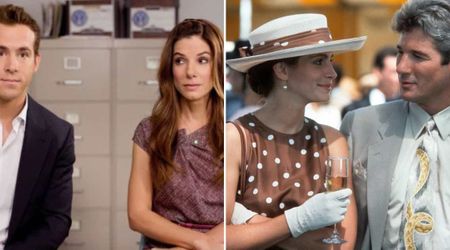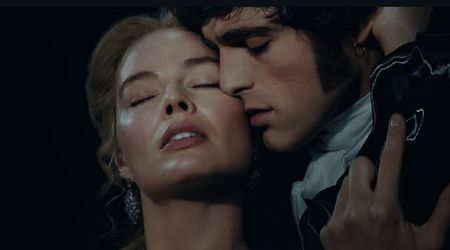'The Last Duel': The TRUE story that inspired the Ridley Scott film

'The Last Duel' can easily be called Ridley Scott's masterpiece and is based on actual events that took place in Paris, on the morning of January 18, 1386.
The film is set in medieval France and stars Matt Damon as Jean de Carrouges, Adam Driver as squire Jacques Le Gris, and Jodie Comer as Jean's wife, Marguerite. Ben Affleck stars in a supporting role as Count Pierre d'Alencon.
RELATED ARTICLES
'The Last Duel': The reason behind clash between friends in Ridley Scott's movie
'House of Gucci' Review: Gaga, Driver shine in Ridley Scott's polarizing project
Jean de Carrouges had a brief encounter with Jacques Le Gris during the former's first visit to Argentan to meet with Count Pierre. During his time there, Carrouges encountered his rival Jacques Le Gris at the court of Count Pierre and even exchanged pleasantries. Although we don't know what they had discussed, it is known that Le Gris had an ongoing reputation of being a strong soldier, but also a womanizer. The last bit half may in fact have played an important part in the allegations that followed soon after.
Coming back to the main event in history, Dame Nicole de Carrouges left her daughter-in-law by herself, since she had legal business to be taken care of at the town of Saint-Pierre-sur-Dives. While her trip was a short one, she had almost all her servants tag along as well, leaving Marguerite entirely alone during the day. According to Marguerite's testimony, a man named Adam Louvel came up to the chateau door and enquired about a loan that he owed Jean de Carrouges. All of a sudden, he adds that Jacques Le Gris was outside as well, insisting on meeting Marguerite, who outright refused. To this, Louvel said that Jacques Le Gris loves her passionately, will do anything for her, and that he greatly desires to see her.
Even at her constant protest, Le Gris forced his way in the house and even offered her money if she kept their affair a secret. When Marguerite blatantly refused, Le Gris brutally raped her with Louvel's help and even threatened her to remain silent after. Marguerite kept mum until Corrouges got back from his trip. He made her repeat the incident in front of most of Marguerite's family, courtiers and friends.
Carrouges decided to take action against Le Gris but faced difficulties since the latter was a favorite of Count Pierre. Also, the only witness was Marguerite and the case was viewed as weak. Count Pierre freed Le Gris of all charges and also accused Marguerite of making up the attack.
Long story short, Carrouges traveled to Paris to appeal to the King himself to fight for justice, all the while knowing that this case rides solely on Marguerite's testimony. He then decided to challenge Le Gris to a judicial duel instead of a criminal trial. The last man standing would be deemed by God to be in the right. During the first week of July 1386, the second stage began, when both Carrouges and Le Gris presented themselves before the Parlement of Paris. At the Palais de Justice, they issued the challenge in a formal manner.
Up until the month of November, that same year, Carrouges repeated his statement time and again, supporting his wife's testimony. On the other hand, Le Gris had the audacity to accuse Carrouges of creating the charges and making his wife (who was now pregnant) build up the accusations against the squire. The King in Flanders was preparing for an invasion of England when the parliament handed down the final verdict. Since both parties were unable to determine the guilty in the case, it was decided that the two men would meet to fight a duel to death on November 27, 1386.
The proceedings took over two months from the final verdict. Eventually, the Abbey of Saint-Martin-des-Champs agreed to host the combat. The event was insanely hyped up, so much so that when King Charles VI was to return to Paris to witness the combat and was held up with prior engagements, he actually sent a messenger to delay the duel by a whole month, so that he would be present to witness the fight.
The morning of the combat (December 29, 1386) saw thousands of Parisians at the Abbey, much ahead of the appointed time. What followed soon after was a magnificent fight between two equally strong men; for valor and respect. Jean de Courrages and Jacques Le Gris fought each other with lances, axes, daggers, and shields. When things got incredibly gory, and Le Gris still didn't confess his crime of assault, Carrouges drove a dagger through his neck, killing him almost instantly, hence being declared the obvious winner of the duel.
Right after, Carrouges was given the prize of a thousand francs, and an additional royal income of 200 francs a year, by the king himself. A couple of weeks passed when the parliament awarded Carrouges an additional six thousand gold coins, and also a permanent position within the royal palace. Due to the controversy that was involved in this case, the duel between Jean de Carrouges and Jacques Le Gris was officially the last of its kind to be allowed by the French government, remembered as a well-attended and infamous event.
'The Last Duel' was released on October 14, 2021.

